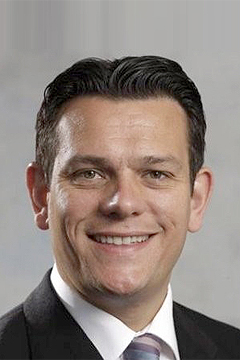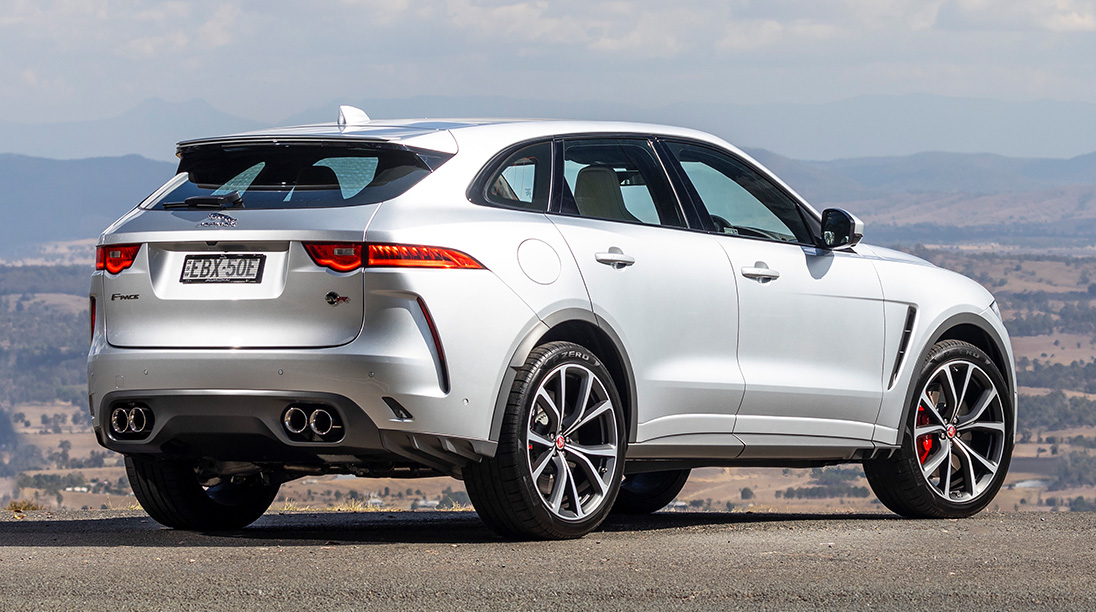
Mark Cameron
THE role of the traditional motor retailer will have to change and adapt but will not disappear as the world moves to a more fragmented and hi-tech private transportation system, according to Jaguar Land Rover (JLR) Australia managing director Mark Cameron.
In his keynote address to the Australian Automotive Dealer Association (AADA) Convention in Melbourne last week, Mr Cameron said dealership location will continue to be “super-important” as customers continue to seek greater levels of convenience.
“We know already that consumers are open to flexible ways of meeting their mobility requirements and will increasingly question the economic wisdom of owning their own car,” he said.
“We see the rapid increase in car sharing schemes such as GoGet and CarNextDoor and the dominance of Uber, which incidentally floated on the New York Stock Exchange for $A120 billion earlier this year despite having never turned a profit!”
Mr Cameron’s speech came in the same week that JLR Australia announced it would partner with technology company Carbar to launch its first OEM-based luxury car subscription service.
The service will offer the F-Pace SUV in Sydney, Melbourne and Brisbane from $389 a week including flexible use, maintenance, roadside assistance, insurance, registration and car services discounts.
“The way in which we use a car is changing, and we aim to be ahead of the curve,” Mr Cameron said.
He said this was one of the many changes ahead for the industry.
“Many people that do want their own car still find the purchase experience and test drive routine unsatisfactory,” he said.
“A US study conducted earlier this year – and I know it’s not that different here – found that 20 per cent of under-35-year-olds considered dealerships intimidating, more than half would be happy to buy without a test drive and 25 per cent would avoid haggling over price.
“So maybe a more flexible sales process or route to sale is required with considerable up-front effort placed on understanding how the customer wants to be treated and their mobility needs rather than impose a ‘one size fits all’.”
Mr Cameron said the industry should be thinking about how the customer’s online experience prior to the face-to-face experience can be as seamless and as integrated as possible.
“Convenience and bespoke service, particularly for luxury brands, will be key differentiators,” he said.
“Given the current challenging trading conditions we frankly can’t afford not to understand our customers better and embrace the future.”
Referring to the Australian sales environment, Mr Cameron said that, compared with the rest of the world, Australia had the advantage of a predicted budget surplus and trending increases in revenues from income tax and corporate tax.
He believes the Reserve Bank of Australia has limited room for further interest rate cuts and that “we should look to government, with their budget surplus, not only to make important infrastructure investments but to also have the courage to reform taxation”.
“This is long overdue for our industry,” he said.
“The layering of federal and state taxes for the car buyer is unwieldy and luxury car tax and the increases in stamp duty here in Victoria are unfairly punitive to hardworking, successful Australians. And will inevitably cost jobs.
“So we need constructive dialogue between our industry and government to find solutions that modernise the tax framework for car buyers and create a level playing field.”
Mr Cameron also said the federal government and banks urgently needed “to address the constipation in lending, particularly retail point of sale finance”.
“Ironically, there is no shortage of cash but the criteria and processes that are required to gain access to credit are costing us all,” he said.
“I am sure we agree that it would be foolish to return to some of the previous loose lending practices but the oversteer in the opposite direction is currently unnecessary and destructive.”
Mr Cameron closed by saying OEMs faced many global challenges, and that in Australia there was a supply and demand imbalance caused by all vehicles being imported and often spending many weeks on the water.
“Turning the tap up or down on production quick enough to respond to volatile market conditions is very difficult,” he said.
“But we have to get better at planning and recognise that no-one wins when inventory levels rise too high.
“Margins erode, the resale values of our customers’ cars fall and it’s a race to the bottom. This is about partnership, recognising the challenges we each face and finding solutions together.”
By Neil Dowling














 Read More: Related articles
Read More: Related articles

